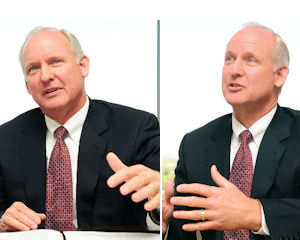As a forensic accountant, David Roberts handles the types of cases you’d see on a television procedural drama. He’s uncovered multi-million-dollar fraud schemes, worked bankruptcy cases involving mansions and fancy sports cars, and collaborated with the IRS and FBI. The position requires more than a knack for numbers, Roberts says. It demands an inquisitive mind, tactical interviewing skills, and the ability to zero in on the story that financial documents can tell. Question: What is forensic accounting? Answer: Forensic means something related to court or the court process. So forensic accounting describes a specialty accounting practice for engagements that result from actual or anticipated disputes or litigation. In forensic services we offer traditional litigation support, expert consulting, expert witnessing, both deposition and trial testimony and fraud investigation, as well. Q: How do the clients benefit from forensic accounting? A: Because it is a dispute, and they want some help in resolving that dispute. For example, a lot of work I do relates to bankruptcy and insolvency. We serve as accountants to trustees, to court-appointed examiners. How do they benefit? We help them gather the facts and circumstances. We investigate those facts, we identify and compile and analyze all source documents. Q: So it’s more interesting than tabulating credits and debits? A: It has a whole investigative side. I have been involved in all kinds of fraud cases — check kiting, Ponzi schemes, bust out schemes, a variety of other fraud-type cases. Within our firm, we handle FCPA, the Foreign Corrupt Practices Act. That has to do with bribery. Q: What kind of training does it take to become a forensic accountant? A: Forensic accountants come from all walks of accounting. There is no set path. It’s more about an understanding of a body of knowledge, for example, the investigative portion. It would be best to look at the type of certifications a forensic accountant might have. There is the certified public accountant that is issued by the states. There is a certified fraud examiner, and certified in financial forensics and the CIRA, which is certified insolvency and restructuring advisor, and then there is the certified information technology professional. Q: What’s your most interesting case? A: They’re all very interesting. I’ve had a kite scheme perpetrated by a car dealer and he ended up kiting more than $20 million from a particular bank. First he pled not guilty in the criminal proceeding. He ended up, after months of investigation, committing murder suicide with his mistress. He shot her and then took his own life. Investigating that whole case was fascinating. We were working for the bank trying to figure out what happened. It was a favorite case because it was so colorful and involved so many people.
